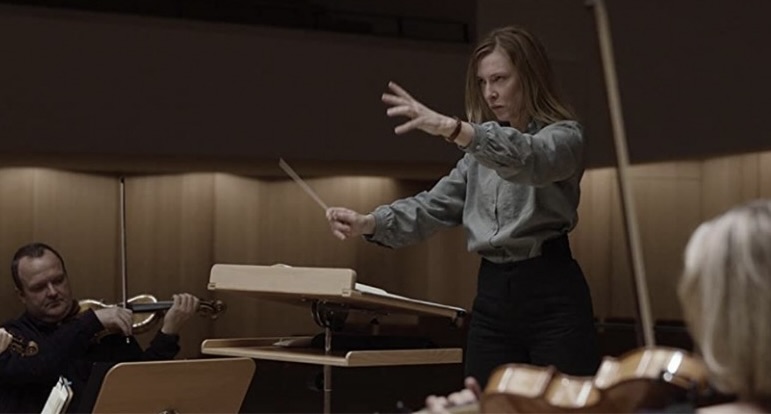Tár is not a bad film, but it’s a boring one. Really boring. Fall-asleep-in-the-first-20 minutes boring. Plain-white-bread-with-nothing-on-it boring. Tár is such an epic struggle to get through that anyone who endures all tedious 158 minutes of it should qualify for hazard pay.
You can argue about each of the Best Picture nominees. There’s no perfect film among the 10 candidates. Some might be too violent, indulgent, odd, or CGI-dependent. But none of these Oscar contenders will drain your soul like Tár—the most boring Best Picture nominee in years.
This is not Cate Blanchett’s fault. Her Best Actress nomination is well-deserved as she fully immerses herself in the role of Lydia Tár, a driven conductor caught in a scandal. Blanchett plays the part so well that you might be convinced that it’s a biopic and not a work of fiction. Tár could have been lively, ambitious, and moving. Instead, director Todd Field takes his sweet time to drag us through a feature that’s way too talky with too many scenes where very little happens.
Tár feels like an inside joke that one percent of the audience will get.
Field (In the Bedroom and Little Children) is capable of gripping dramas featuring characters and situations that challenge us. Tár could have been interesting and entertaining with strategic edits and sharper dialogue. But Field does Blanchett no favors here. He bogs the pace down right from the start. It’s so deliberate that you wonder why no one pulled him aside to inform him that beginning a movie in the most irritating way possible is a terrible idea.
After sitting through 20 minutes of trailers, most people are eager for the film to start. What does Field do? Tár opens with the lengthy “end” credits usually shown when the movie ends. Yep, that’s right. This choice might have a legitimate artistic reason, but it’s an agonizing viewing experience. When Tár finally gets going, it starts with an onstage Q&A that drones on seemingly forever. It would be one thing if the conversation featured witty banter or had a big payoff or punchline. We don’t get rewarded at all. Instead, the opening plays out like the world’s dullest podcast.
Tune in next week when they discuss 17th-century farming techniques for vegetables. Awesome.
There are a lot of scenes like this— smart people chatting without saying anything remotely noteworthy. Whether it’s Tár talking to neighbors, her lover, her students, etc. Even the way the movie handles the scandal isn’t particularly riveting, which is an unfathomably odd choice. And just when things get a little intriguing, such as when Tár pursues cellist Olga, the movie reverts to its plodding pace.
https://www.youtube.com/watch?v=xFTu6yJUuYU
Blanchett tries her best to break free of a script that handcuffs her. She delivers three good scenes in this snoozefest (the confrontation with the school bully, the attack on a fellow conductor, and her accordion playing). As usual, she gives it her all. Wish Field had done the same.
Field doesn’t have to care about criticism because Tár received six (!) Oscar nominations, including two specifically for him (Best Director and Best Original Screenplay). That’s laughable. Did the Academy watch this film at 4X speed to make it more palatable?
The funniest part about Tár is its utter lack of self-awareness. The film includes the following quote: “Don’t be so eager to be offended. The narcissism of small differences leads to the most boring kind of conformity.”
Internal bickering about the direction of Tár might have saved us all from boredom.







